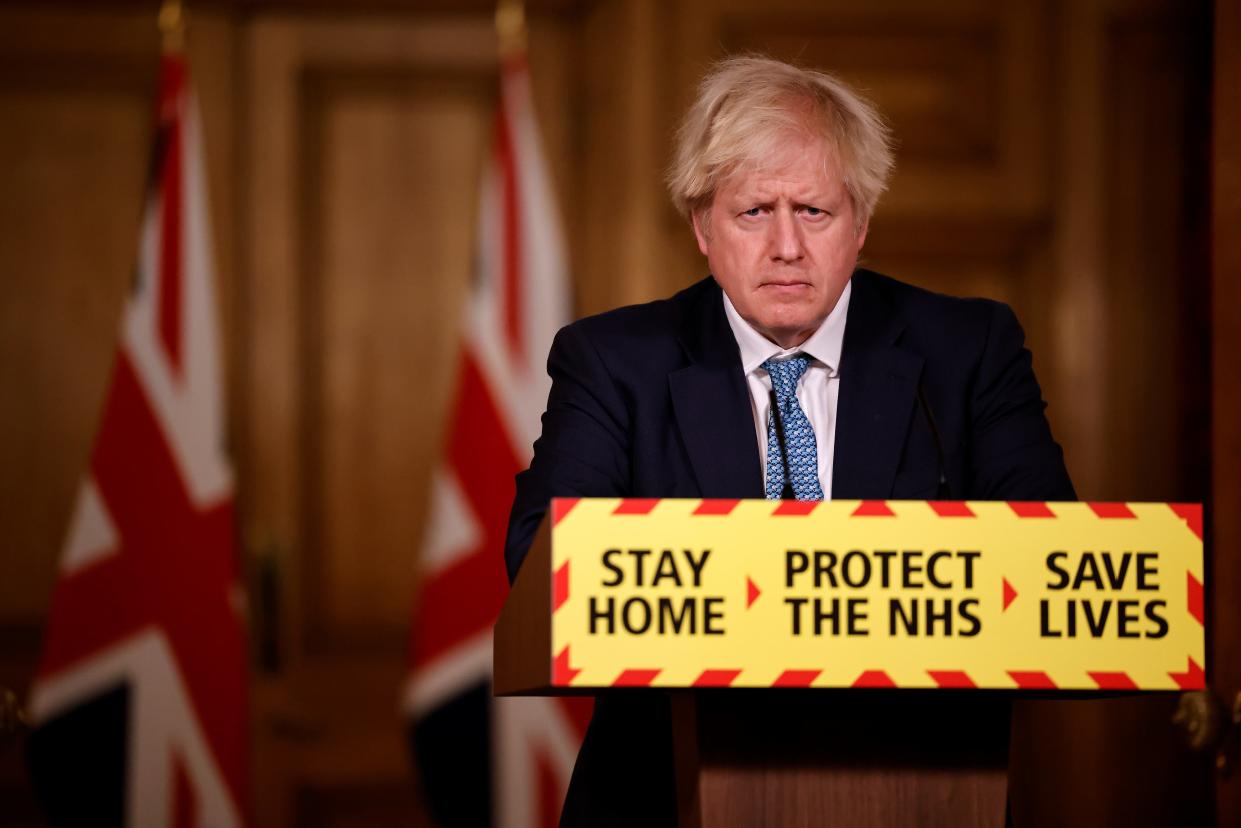When will lockdown end? OLD

Latest lockdown length depends on the success of the vaccine rollout
(Getty Images)England, along with Scotland and Wales, is now in another full national lockdown due to surging coronavirus cases.
England’s third lockdown was announced on 4 January by Boris Johnson at a briefing from Downing Street, the new measures include the implementation of stay-at-home measures while schools have been forced to turn to digital learning.
The lockdown came into effect 5 January with the measures following on from the four tier system introduced. This allowed areas with low Covid-19 prevalence to live under less strict restrictions.
When will lockdown end?
The latest lockdown restrictions are set to be reviewed in the middle of February, with Mr Johnson setting a potential close for the latest lockdown at the end of the school half term on 19 February, depending on the success of the vaccine rollout.
If kept to this schedule it would be the second-longest of the nationwide lockdowns experienced so far – clocking in at 45 days compared to 50 before March restrictions were eased and 27 in November.
However, the PM has left the specific date end vague – while ministers have warned the restrictions may be in place for longer still with Michael Gove telling Sky News that March should mark the point at which restrictions begin to be eased.
Currently the legislation lasts until 31 March, but the speed at which restrictions could be eased will depend on how quickly the vaccine can be rolled out.
Mr Gove said: "We will keep these constantly under review but you are absolutely right, we can't predict with certainty that we will be able to lift restrictions in the week commencing 15 February.
"What we will be doing is everything that we can to make sure that as many people as possible are vaccinated, so that we can begin to progressively lift restrictions.
"I think it is right to say that as we enter March we should be able to lift some of these restrictions but not necessarily all."
Could the end of lockdown be pushed back further?
While the last lockdown saw the government stick to a strict deadline, the prime minister was more cautious about putting a strict time limit on this round of national restrictions in his Downing Street address.
In the early days of the pandemic, the government’s first lockdown was not given a strict end date before it was ultimately eased on 10 May.
However in the November lockdown, the government was repeatedly challenged on whether it would stick to its imposed limit of 2 December – and ultimately moved into the tiered system on schedule.
Announcing the latest restrictions, Mr Johnson said the nation should remain “cautious” on the timetable ahead – pinning the hopes of a step out of lockdown to the success of England’s vaccine rollout.
Mr Johnson told MPs: “As was the case last spring, our emergence from the lockdown cocoon will not be a big bang but a gradual unwrapping.
He went on to add that the legislation would run until 31 March "not because we expect the full national lockdown to continue until then, but to allow a steady, controlled and evidence-led move down through the tiers on a regional basis – carefully, brick by brick, as it were, breaking free of our confinement but without risking the hard won gains that our protections have given us”.
Read More
Lockdown ‘could get tougher’ as UK to face ‘worst weeks of pandemic’
Joe Wicks’s lockdown PE: Everything your child needs for a workout

